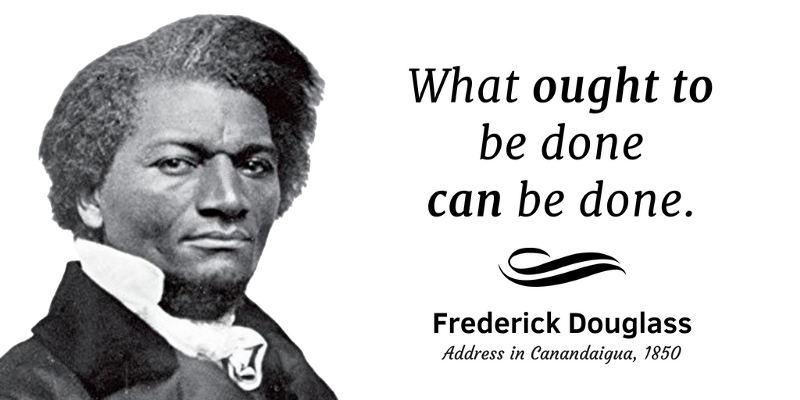

Once the colony of a distant monarch, America now stands proudly in its own right. However, Douglass contends that change is possible: America is a country of transformation, and a country that changes according to need so that it can become stronger. As an example, Douglass notes that the Church bans books and plays because they are deemed un-Christian, but they will not work toward banning slavery, which, Douglass asserts, is far more anti-Christian than a novel about infidelity.

He observes that true Christians should be able to recognize that making one man another's slave is wrong, and he is angered by the way all religious institutions have enabled slavery in America when it is clearly condemned in the Bible. These actions, Douglass says, are admirable, but shine light on the hypocritical existence of slaves in a country that rebelled against another type of "master" less than a century prior. The men who fought seventy years earlier felt enslaved to their British masters, and felt strongly enough about gaining their own independence and rights that they were willing to give their lives for the cause. He opens by comparing the goals of the colonists who fought in the Revolutionary War against England with the slaves who are fighting for their own independence. He argues that both these powers-the constitution and the Bible-are fundamentally at odds with the existence of slavery in America. In the speech, he praises both the founding fathers of the United States and Christian ideology to which many Americans subscribed. Douglass's central goal in What to the Slave is the Fourth of July? is to unveil American hypocrisy in its ongoing participation in an internal slave trade.


 0 kommentar(er)
0 kommentar(er)
